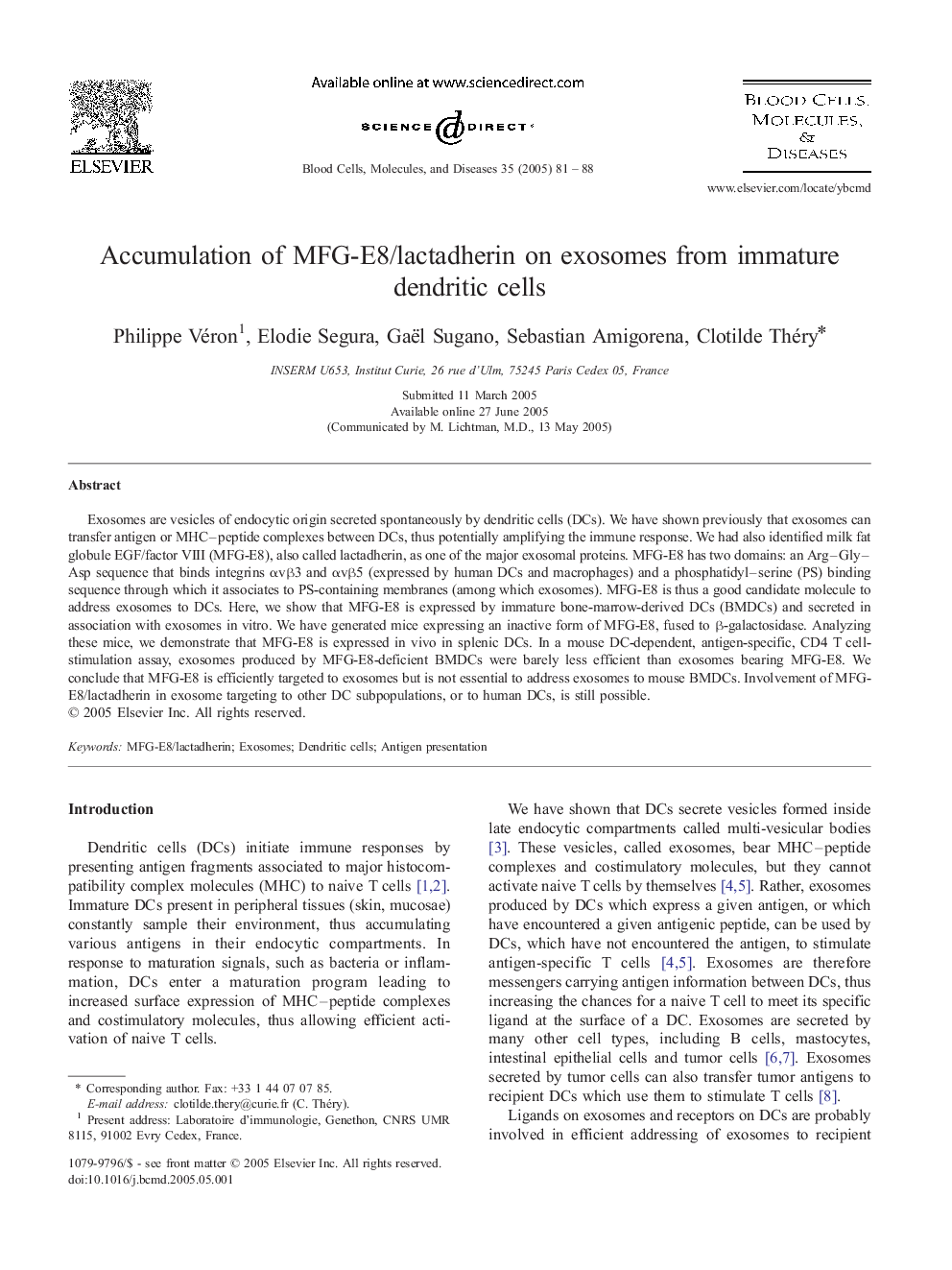| Article ID | Journal | Published Year | Pages | File Type |
|---|---|---|---|---|
| 9137527 | Blood Cells, Molecules, and Diseases | 2005 | 8 Pages |
Abstract
Exosomes are vesicles of endocytic origin secreted spontaneously by dendritic cells (DCs). We have shown previously that exosomes can transfer antigen or MHC-peptide complexes between DCs, thus potentially amplifying the immune response. We had also identified milk fat globule EGF/factor VIII (MFG-E8), also called lactadherin, as one of the major exosomal proteins. MFG-E8 has two domains: an Arg-Gly-Asp sequence that binds integrins αvβ3 and αvβ5 (expressed by human DCs and macrophages) and a phosphatidyl-serine (PS) binding sequence through which it associates to PS-containing membranes (among which exosomes). MFG-E8 is thus a good candidate molecule to address exosomes to DCs. Here, we show that MFG-E8 is expressed by immature bone-marrow-derived DCs (BMDCs) and secreted in association with exosomes in vitro. We have generated mice expressing an inactive form of MFG-E8, fused to β-galactosidase. Analyzing these mice, we demonstrate that MFG-E8 is expressed in vivo in splenic DCs. In a mouse DC-dependent, antigen-specific, CD4 T cell-stimulation assay, exosomes produced by MFG-E8-deficient BMDCs were barely less efficient than exosomes bearing MFG-E8. We conclude that MFG-E8 is efficiently targeted to exosomes but is not essential to address exosomes to mouse BMDCs. Involvement of MFG-E8/lactadherin in exosome targeting to other DC subpopulations, or to human DCs, is still possible.
Related Topics
Life Sciences
Biochemistry, Genetics and Molecular Biology
Molecular Biology
Authors
Philippe Véron, Elodie Segura, Gaël Sugano, Sebastian Amigorena, Clotilde Théry,
